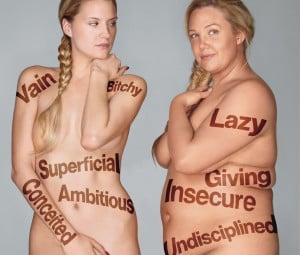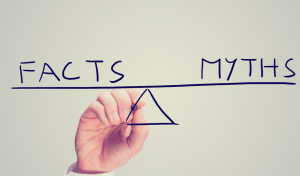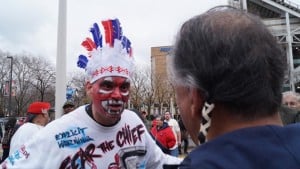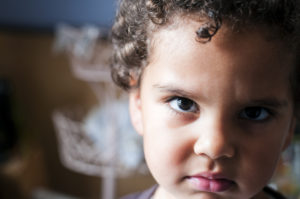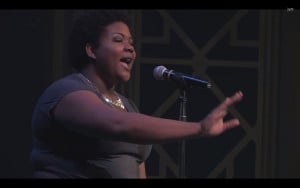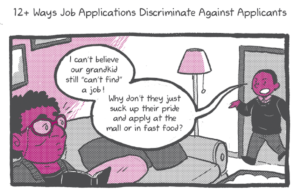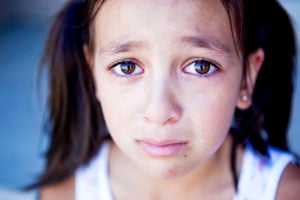
Source: Jezebel
Whether you’re a Law & Order: SVU fanatic or have only seen the opening credits while casually flipping through channels, you’re probably familiar with the premise of the show.
“In the criminal justice system, sexually-based offenses are considered especially heinous. In New York City, the dedicated detectives who investigate these vicious felonies are members of an elite squad known as the Special Victims Unit. These are their stories.”
Considered especially heinous.
Oh, really?
So what about when the police snicker as you report your rape story? When your rape kit never gets processed and joins the 400,000-strong national backlog? When slut-shaming is an effective defense strategy in court? Or when your college or university dissuades you from reporting the assault at all?
The stark difference between what rape investigations look like on Law & Order: SVU and how they typically play out in real life is troubling and offensive.
But this is only television, right? I should just calm down and allow the show to be watched for entertainment value, you might be dying to tell me.
So I’ll remind you that 1 in 5 women in the US will be sexually assaulted in her lifetime and that only 3% of rapists will ever spend a day in prison.
We can’t afford to not dismantle rape culture in all facets of its existence, ranging from its appearance in the media to the gender roles we teach children to adopt.
The media is a powerful force, and Law & Order: SVU, along with other television shows and movies that sensationalize rape, are undoubtedly informing the public’s understanding of rape and the justice that survivors are able to seek after the fact.
The Consumption of Rape Victims as Entertainment
The depiction of rape in the media is not an inherently bad thing.
But it is a bad thing when rape is part of a story line just for the sake of entertainment, for added suspense and sparkle.
When the media capitalizes on the lived experiences of survivors by sensationalizing rape, a troubling and almost fetishistic conflation of “sex sells” and “violence sells” emerges – even though rape is not sex, nor ever about sex.
When television shows like Law & Order: SVU use and capitalize on rape as a means to allure viewers, the “featured” rape story becomes reduced to a mere gimmick.
Law & Order: SVU has built an empire on making rape a spectator sport.
The show doesn’t meaningfully or consistently tackle the pervasive issue of rape. It uses the issue of rape for its own profit.
With the invasive nature of rape kit tests and the way the bodies of survivors of sexual assault are made to be third-player defendants under the rhetoric that someone’s body can “invite” or “justify” rape, many survivors feel that their bodies are crime scenes.
So for us to unabashedly consume crime investigation shows like Law & Order: SVU, what we’re contributing to is a broader culture of the commodification and consumption of (mostly female-identified) bodies in the form of crime scenes.
Yes, I know that sometimes the show has a great line that takes down victim blaming, and does better than most mainstream media at representing rape, although the bar is not set high.
But at the end of the day, I can’t shake the fact that Law & Order: SVU sets up rape as a point of entertainment that feeds the playbook myths of rape culture.
Myths, Myths, and More Myths
Law & Order: SVU is an active participant in the cycle of rape culture in the way it both fuels and regurgitates myths about rape and how sexual assault investigations are handled.
While I haven’t personally audited every last episode of Law & Order: SVU, I know that false reports and allegations are considerably overrepresented on the show.
In reality, only 2-8% of reported rapes are false reports, and even fewer are false allegations against a specific person or people.
And this doesn’t take into account the number of reports that are pigeonholed by investigators as false because the person reporting is on anti-depressants, is a sex worker, previously had consensual sex with the reported rapist, or any other extraneous details that can make an investigator wrongly assume that a survivor is lying.
Law enforcement personnel believe that half or more of reported rapes are fabricated. The last thing we need is a television show that jumps on the false rape reports bandwagon. Unfortunately Law & Order: SVU has been on it for over ten years.
While the show spins the false-reporting wheel, it simultaneously constructs the public’s understanding of what rape looks like. And this construction leaves out much of the spectrum of how, where, when and with whom an assault can happen.
If a rape story isn’t physically violent and bloody, it’s probably not prime time-worthy.
A show that sensationalizes rape doesn’t portray rape as something that can quietly happen in your apartment with a trusted friend.
The majority of rapes are committed by someone the victim knows, but we’re much more likely to see masked strangers lurking in the bushes commit rape in mainstream media.
Consistently portraying rape in its most “prime time-worthy” form actively perpetuates myths about what rape looks like, thus drawing a false and ridiculous distinction between “legitimate rape” versus the experiences of survivors whose stories don’t fit into the definition of forcible rape.
It’s no wonder that it took until just last year for the FBI to expand is definition of rape beyond “forcible rape.”
The way Law & Order: SVU portrays the nature of sexual assault and the occurrence of false reporting feeds the lifeblood of rape culture by making rape out to be something rare and something that victims lie about it in the first place.
See how that nicely lets rapists off the hook and keeps us all very mum about the countless ways rape impacts our daily lives?
Perhaps most infuriating is how accessible the show makes justice looks for survivors of sexual assault. Investigators believe you and go above-and-beyond for you, rape kits are quickly processed, medical care is sensitive and affirming, and court cases effectively lock up your rapist.
That almost never happens in real life.
What Law & Order: SVU doesn’t show you are real interactions between detectives and survivors of sexual assault like these:
A detective to an 18-year-old runaway who was assaulted at night: “You shouldn’t have been outside. This is what happens at two in the morning. What do you expect?”
A detective describing a rape victim who was found unconscious in a hotel room with five men, with severe tears to her vagina and rectum that required emergency surgery: “Well, she could have fallen on rocks and may not have had panties on. Also, what kind of girl is in a room with five guys?”
The quotes above speak to the harmful presence of the false reporting myth and victim blaming in sexual assault investigations outside the television screen, which are perpetuated and thrown back in our faces by shows like Law & Order: SVU.
—
I’m not okay with the way Law & Order: SVU portrays sexual assault and the criminal justice system because it’s offensively different from reality and the lived experiences of survivors that bravely file reports.
While some find that watching a fictional survivor of rape seek and achieve legal justice in the span of an hour is a comforting alternative to reality, I don’t think it does us any favors.
It may be a refreshing change of pace, but to me, it’s a sick rape joke when I think about all the women I know who never once enjoyed any sense of justice after reporting their rape because nobody believed them.
Want to discuss this further? Login to our online forum and start a post! If you’re not already registered as a forum user, please register first here.
Sara Alcid is a Contributing Writer for Everyday Feminism and is a young feminist living and working in Washington, DC as a reproductive health and justice advocate. Sara loves thinking, reading and writing about the socially and personally transformative power of feminism, queer issues, and women’s health. Follow her on Twitter @SaraAlcid. Read her articles here and book her for speaking engagements here.
Search our 3000+ articles!
Read our articles about:
Our online racial justice training
Used by hundreds of universities, non-profits, and businesses.
Click to learn more







